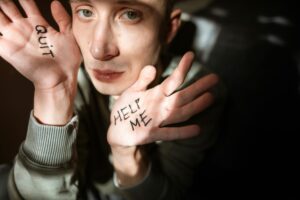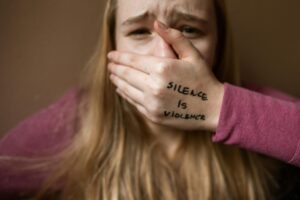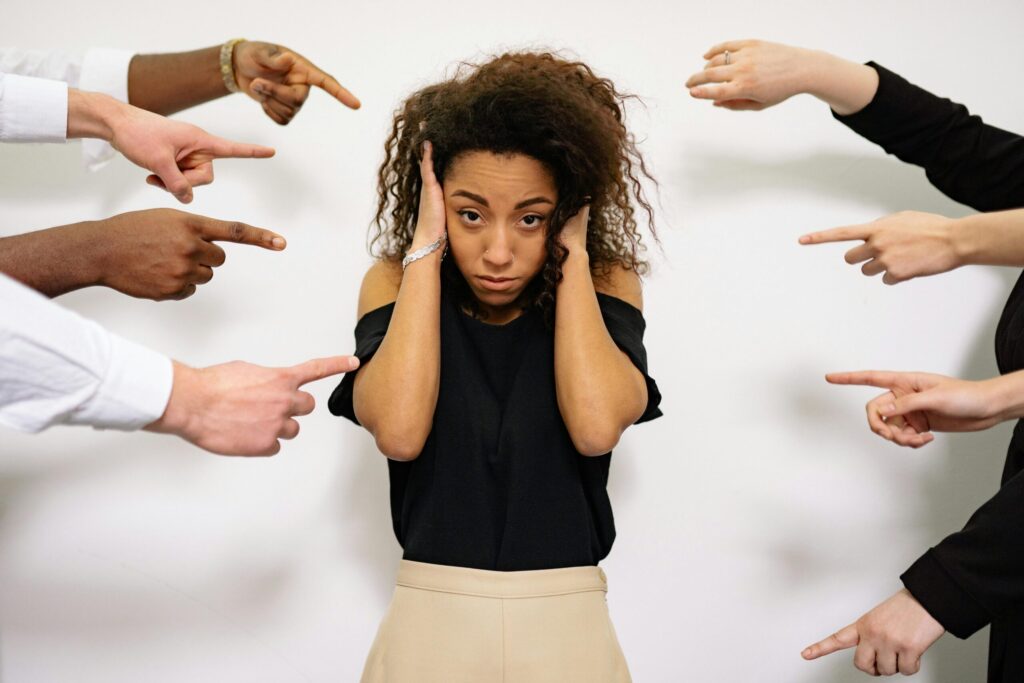Victim blaming is assigning responsibility for a crime or a wrong act to the victim either in part or in whole. This is the kind of thinking most of us accept consciously or unconsciously, diverting attention from the perpetrator’s action to the victim’s action, appearance, or choice. In sexual assault, domestic violence, or other abuses, victim blaming has important psychological, social, and legal consequences.
Victim blaming occurs when people question a victim’s actions more than the perpetrator’s. Classic examples are to ask a rape victim, “What were you wearing?” or to complain about why a domestic violence victim “just didn’t leave.” This kind of thinking not only invalidates the victim’s trauma but also lets the perpetrator off the hook for full responsibility.

Victim blaming has been seen in all societies and classes of society. According to a 2019 survey conducted by the American Psychological Association (APA), 25% of the respondents concurred that victims were partially to blame for sexual assault if they had been intoxicated or dressed seductively.In a different international survey by YouGov in 2021, one-fifth of Britons said that a woman who had been attacked after being drunk or flirtatious with a man was partly responsible. These are not isolated behaviors from the general public; even police officers and courts have had instances of victim-blaming bias.
Victim-blaming adds to the trauma of victims by making them feel more shame and guilt. Victims take heavier blame internally, and this leads to depression, anxiety, low self-esteem, and post-traumatic stress disorder (PTSD). Based on a 2020 Journal of Interpersonal Violence study, victims blamed by their communities are twice as likely to have long-term psychological trauma compared to victims who are not blamed. Moreover, victim blaming discourages victims from reporting crimes. According to the RAINN (Rape, Abuse & Incest National Network), in the United States, more than 60% of sexual assaults go unreported, and one of the leading reasons is disbelief and/or blame.
Psychologists suggest that victim blaming is partly a defense mechanism. People prefer to believe in a “just world,” where bad things only happen to those who deserve them. Accepting that anyone—including ourselves—can become a victim is deeply uncomfortable, so blame is redirected toward the victim to restore a false sense of safety and order.
Victim blaming is not just a poisonous attitude—it’s a barrier to justice, recovery, and social change. Breaking the silence means breaking down these poisonous attitudes, trusting survivors unconditionally, and placing blame where it rightfully is: with the abusers. Educating ourselves and others is the foundation of a kinder, more equitable world.



